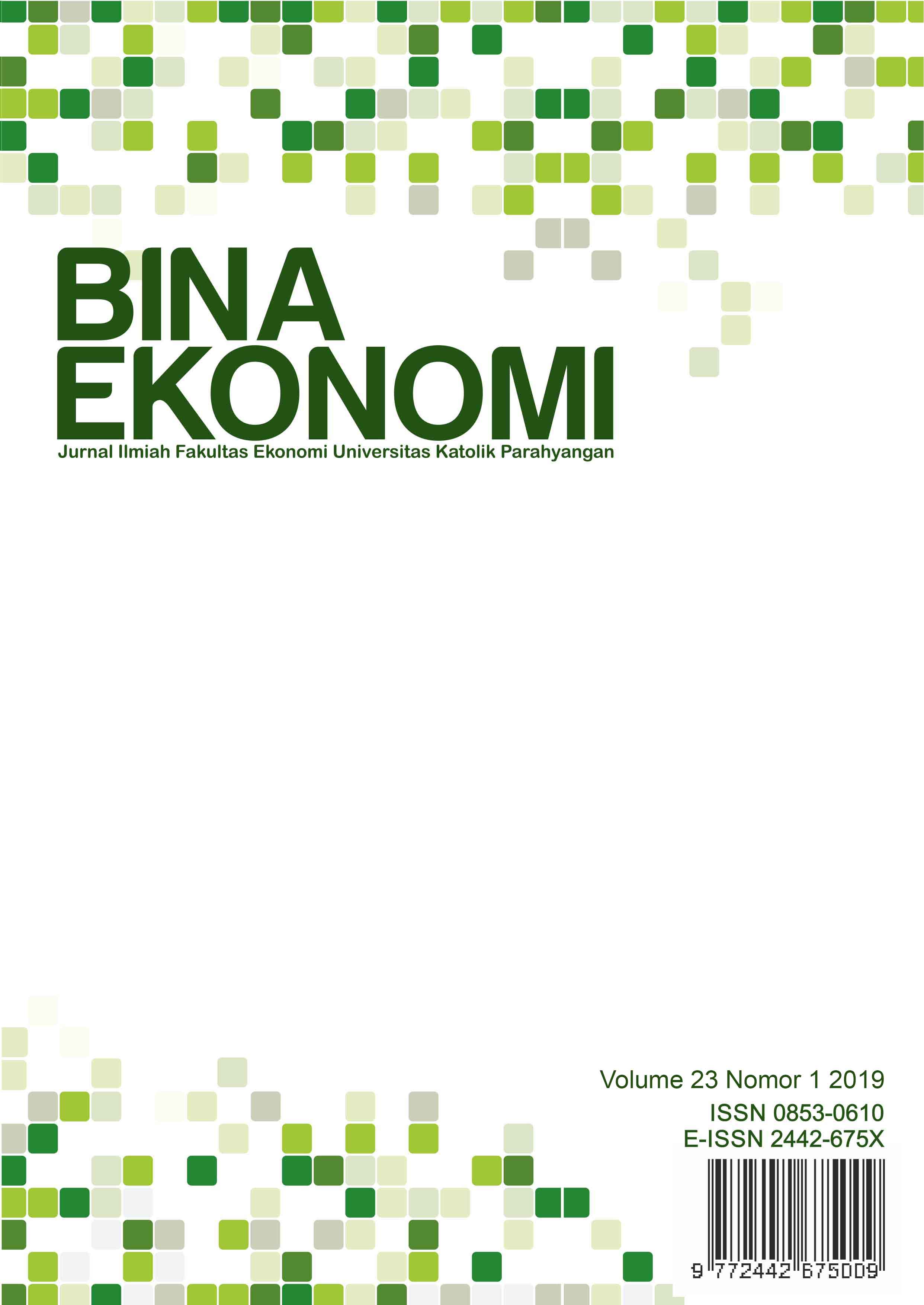PERANCANGAN MODEL BISNIS BANK SAMPAH DI KOTA BANDUNG MENGGUNAKAN BUSINESS MODEL CANVAS
DOI:
https://doi.org/10.26593/be.v23i1.3858.1-12Abstract
ABSTRACT
A waste bank is a place for collecting and sorting dry waste. Waste is saved, weighed, and valued with a sum of money. Trash is sold in factories that worked with the waste bank. The waste bank engages people to sort waste and provide public awareness in managing waste and reducing waste that is transported to landfills. Waste segregation is one of the efforts made in the community to reduce the problem of household waste. Waste sorting is done so that the recycling process can be done more effectively and efficiently. Waste management with a waste bank system is expected to be able to assist the government in handling waste and improving the community's economy. The benefits of the waste bank are to help waste management, make the community aware of a healthy, neat, and clean environment, turning waste into something more useful. The method used to design a waste bank’s business model with a business model canvas. The results obtained by a complete framework regarding the resources, activities, and related parties needed to run a waste bank in Bandung.
Keywords: waste bank; waste sorting; business model canvas
References
Akinci, G., Guven, E. D., & Gok, G. (2012). Evaluation of waste management options and resource conservation potentials according to the waste characteristics and household income: A case study in Aegean Region, Turkey. Resources, Conservation and Recycling, 58, 114-124. doi:10.1016/j.resconrec.2011.11.005
Asteria, D., & Heruman, H. (2016). Bank sampah sebagai alternatif strategi pengelolaan sampah berbasis masyarakat di Tasikmalaya. Jurnal Manusia dan Lingkungan, 23(1), 136-141. doi: 10.22146/jml.18783
Barnadi, D. A. (2010). Analisis pelaksanaan kebijakan pengelolaan sampah sebagai upaya meningkatkan kualitas lingkungan hidup di Kota Bandung. IPB Scientific Repository. Diunduh dari https://repository.ipb.ac.id/bitstream/handle/123456789/55044/2010dab.pdf?sequence=3&isAllowed=y
Dewobroto, W. S. (2013). Penggunaan business model canvas sebagai dasar untuk menciptakan alternatif strategi bisnis dan kelayakan usaha. Jurnal Teknik Industri, 1(2), 215-230.
Efrial, F. (2016). Membangun model bisnis startup teknologi berbasis wirausaha sosial menggunakan kanvas model bisnis (studi kasus: Desa Nusa). Skripsi.
Fitriasari, F., & Nurjannah, D. (2016). Analisis pengaruh bank sampah malang (BSM) terhadap pendapatan masyarakat Kota Malang. Business Management Journal, 12(1). 53-70.
Hasanah, L. lak N. (2018). Pengembangan kewirausahaan sosial pada perguruan tinggi melalui social project competition. Jurnal Studi Pemuda, 7(2), 90-99. doi: 10.22146/studipemudaugm.40210
Munthe, I. P. (2018). Kontribusi bank sampah dalam pemberdayaan masyarakat Desa Kolam. Universitas Islam Negeri Sumatera Utara. Skripsi.
Osterwalder, A., & Pigneur, Y. (2010). Business model generation: a handbook for visionaries, game changers, and challengers. New Jersey: John Wiley & Sons.
Pahlavi, G. (2016). Model bisnis biobriket berbahan baku rami (boehmeria nivea) dengan pendekatan design thinking. Universitas Padjadjaran. Skripsi.
Ramadhan, M. A. (2016). Perbandingan efektivitas bank sampah di Kota Bandung dan Kota Yogyakarta. INformasi dan Ekspose hasil Riset Teknik SIpil dan Arsitektur, 12(1), 85-90.
Santosa, Setyanto P. (2007). Peran social entrepreneurship dalam pembangunan. Seminar Membangun Sinergisitas Bangsa Menuju Indonesia yang Inovatif, Inventif dan Kompetitif. Universitas Brawijaya.
Sugiharti, H. (2018). Survei timbulan sampah seluruh TPS dan perhitungan harga satuan di Kota Bandung. Accounthink: Journal of Accounting and Finance, 3(2), 610-624. doi:10.35706/acc.v3i02.1488
Suryani, A. S. (2014). Peran bank sampah dalam efektivitas pengelolaan sampah (studi kasus bank sampah Malang). Jurnal Aspirasi, 5(1), 71-84.
Syabrina, H. (2015). Keterkaitan antara theory of change dengan monitoring dan evaluasi. Skripsi.
Zulfinar, Z., & Sembiring, E. (2015). Dinamika jumlah sampah yang dihasilkan di Kota Bandung. Jurnal Teknik Lingkungan, 21(1), 18-28.


